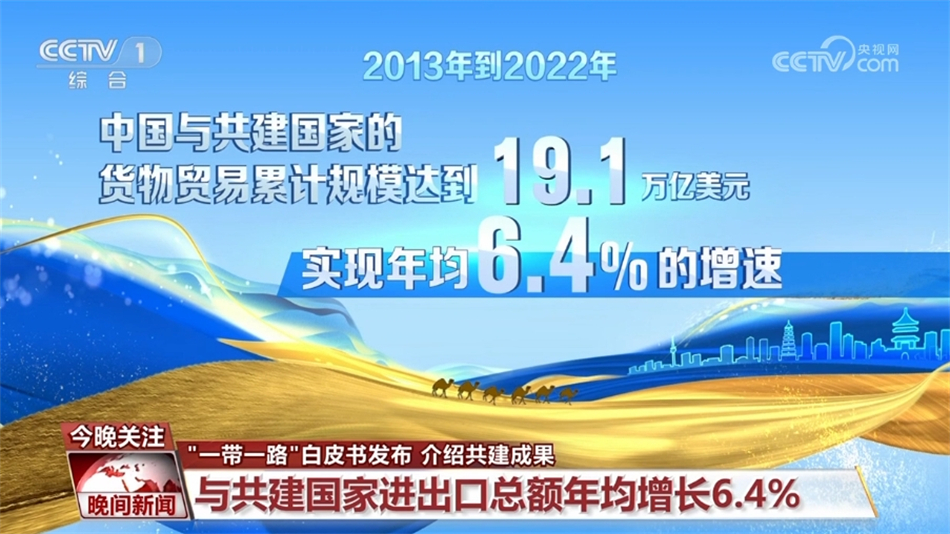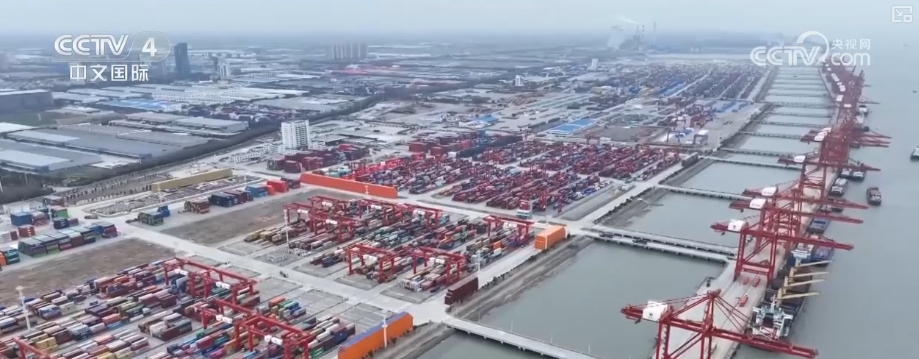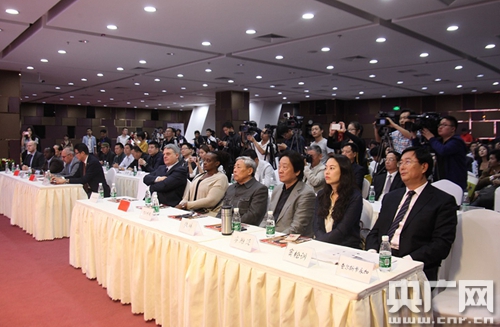China's Economic Development Is Open And Win-win
China's Economic Development Is Open And Win-win
General Secretary Zhong Caiwen, General Secretary Xi Jinping emphasized that China's determination to expand high-level opening up will not change, its determination to share development opportunities with the world will not change, and its determination to promote economic globalization toward a more open, inclusive, inclusive, balanced and win-win direction will not change.
Zhong Caiwen
General Secretary Xi Jinping emphasized that China's determination to expand high-level opening up, share development opportunities with the world, and promote economic globalization in a more open, inclusive, balanced, and win-win direction will not change. The three "unchanged" figures are lofty and profound, and show the world-wide sentiments and foresight of the leaders of major parties and countries from the perspective of a community with a shared future for mankind. Under the scientific guidance of Xi Jinping’s economic thought, China’s economic ship is forging ahead through the waves, showing a distinctive feature of openness and win-win results.
First, we must adhere to the correct direction of economic globalization and make important contributions to promoting the sustained and stable development of the world economy. China is not only a beneficiary of economic globalization, but also a contributor, defender and promoter. Since the reform and opening up, China's economy has been deeply integrated into the world and has become an important source of power and stabilizing anchor for world economic growth. China's contribution to world economic growth has remained around 30% for a long time. Whether in response to the Asian financial crisis at the end of the last century or the international financial crisis in 2008, China has played a vital role in stabilizing the world economy. Currently, problems such as imbalances in growth and distribution and the opposition between capital and labor are becoming increasingly prominent in some countries. Unilateralism, protectionism, and extremism are becoming more and more intense. The process of economic globalization has encountered "headwinds and countercurrents." As General Secretary Xi Jinping pointed out, multilateralism is the inevitable choice to solve the difficult challenges facing the world, and economic globalization is an unstoppable historical trend. China has always stood on the right side of history, supported and practiced true multilateralism, firmly safeguarded the multilateral trading system with the WTO as its core, promoted the reform and improvement of global economic governance, and contributed Chinese wisdom and Chinese solutions to promote the development of economic globalization in the right direction.
The second is to firmly maintain the resilience and stability of global industrial and supply chains and provide strong support for the smooth circulation of the world economy. General Secretary Xi Jinping pointed out that maintaining the resilience and stability of global industrial and supply chains is an important guarantee for promoting world economic development and serves the common interests of people of all countries in the world. China is the only country in the world that has all industrial categories in the United Nations Industrial Classification. During the COVID-19 epidemic, China, as the world's largest manufacturing country, ensured that the "Chinese segment" of the global industrial and supply chains remained intact, which greatly contributed to the global fight against the epidemic and the recovery of the world economy. With the transformation and upgrading of its industrial structure, China has built the world's largest and most complete new energy industry chain and supply chain. In the past 10 years, it has driven the global average cost of electricity for wind power and photovoltaic power generation to drop by more than 60% and 80% respectively. Solheim, vice chairman of the "Belt and Road" International Alliance for Green Development and former deputy secretary-general of the United Nations, pointed out that China is an indispensable force in the global green transformation and an active promoter of renewable energy development.
The third is to promote high-quality joint construction of the “Belt and Road” and provide important public goods and cooperation platforms for the international community. Since General Secretary Xi Jinping pioneered the “Belt and Road” initiative in 2013, the joint construction of the “Belt and Road” has evolved from the “general freehand brushwork” of planning and layout to the “meticulous painting” of intensive cultivation, and has become the most extensive and largest international cooperation platform in the world today. "Hard connectivity" has been solidly advanced, and a number of major landmark projects such as the China-Laos Railway, the Jakarta-Bandung High-speed Railway, the Chancai Port, and the Mombasa-Nairobi Railway have been completed. The interconnection structure of "six corridors, six roads, multiple countries, and multiple ports" has been basically formed. A total of more than 110,000 China-Europe freight trains have been operated, becoming a veritable "steel camel fleet". According to German media reports, the China-Europe freight train has rejuvenated Duisburg, which once faced a decline in growth momentum. "Soft Connectivity" continues to advance, and has signed joint construction and cooperation documents with more than 150 countries and more than 30 international organizations, and signed 23 free trade agreements with 30 countries and regions. "Heart-to-heart connectivity" continues to deepen, and a large number of "small but beautiful" people's livelihood projects in the fields of agriculture, education, medical care, poverty alleviation, water conservancy, disaster prevention and reduction have taken root, effectively improving the well-being of the people of the jointly built country.
The fourth is to unswervingly expand high-level opening up to the outside world and create broad opportunities for the common development of all countries in the world. On March 28, General Secretary Xi Jinping pointed out when meeting with representatives of the international business community that walking with China means walking with opportunities, believing in China means believing in tomorrow, and investing in China means investing in the future. The Chinese market is huge and growing rapidly, with annual consumption of nearly 50 trillion yuan and imports exceeding 20 trillion yuan. my country has taken the initiative to expand imports and share large market opportunities. It has granted zero-tariff treatment to all least developed countries that have established diplomatic relations with China on 100% of their tax items. The cumulative intended transaction volume of the seven CIIEs that have been held has exceeded US$500 billion. my country has actively aligned itself with international high-standard economic and trade rules, continued to optimize the business environment, and steadily expanded institutional opening-up. Restrictions on foreign investment access in the manufacturing sector have been "cleared," and pilot opening-up in service industries such as telecommunications, medical care, and education has steadily advanced. A member survey conducted by the U.S.-China Business Council shows that the vast majority of companies surveyed believe that the Chinese market is indispensable for maintaining their global competitiveness. China's development provides the world with huge opportunities, rather than so-called "impacts".
"People's Daily" (Page 02, October 06, 2025)





